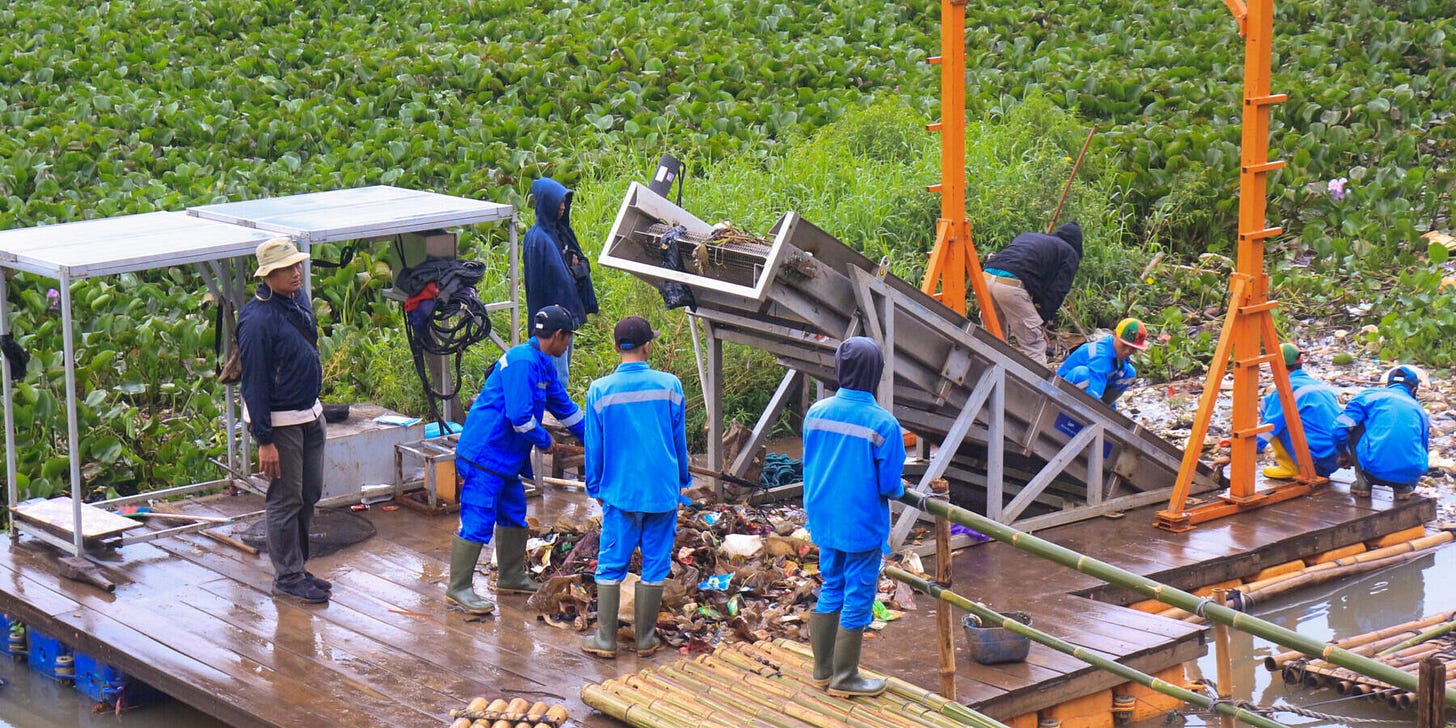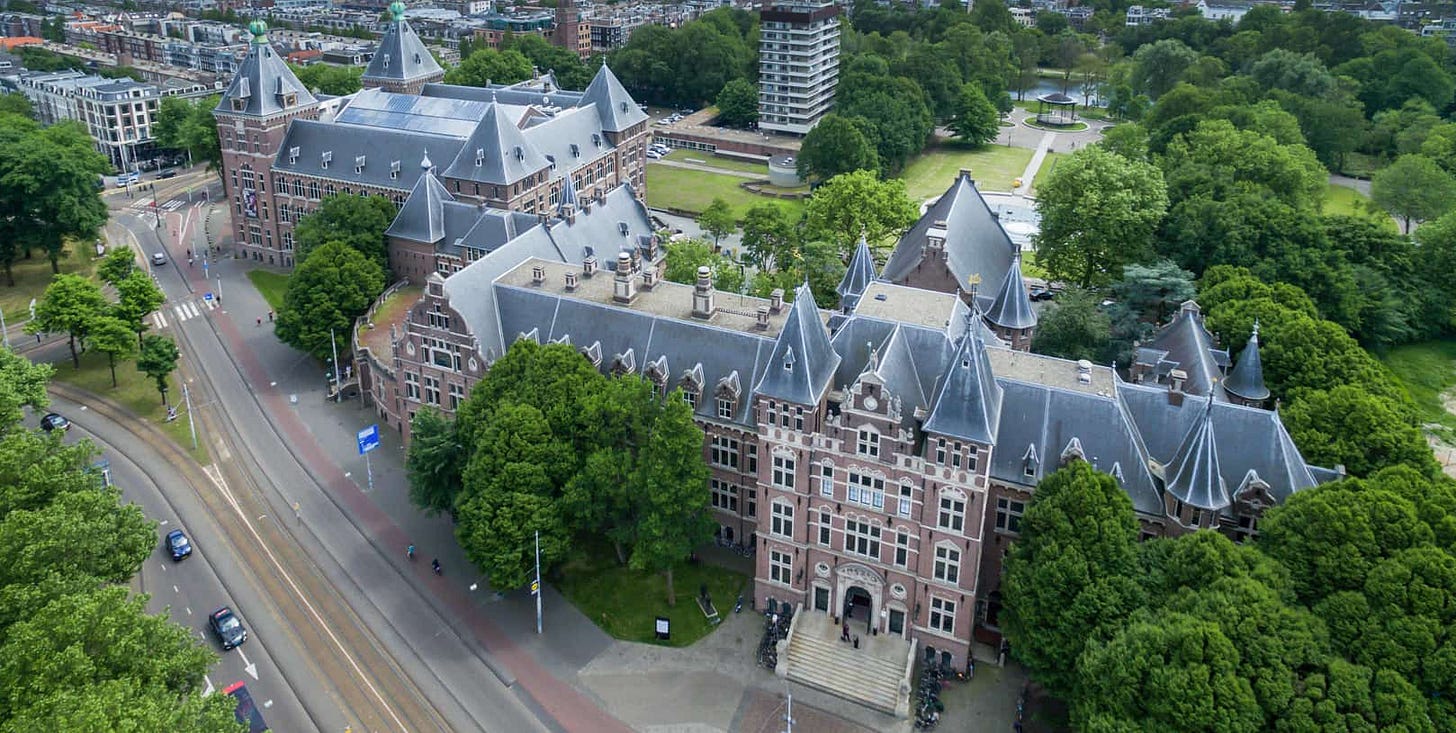
On Thursday March 6, I attended an Investors’ Event of Invesdor at the KIT Royal Tropical Institute in Amsterdam. There were presentations by experts from Invesdor, Profundo, and Peel Pioneers, a workshop and snacks and drinks at the end so that the attendees could mix (with each other). KIT—the location of the event—is now a ‘knowledge centre, business location and hospitality venue with a mission: to contribute to an inclusive and sustainable world1’.
The event was about impact investments; that is, trying to find investments that not only have a good ROI, but also to generate positive, measurable social or environmental impact. It’s what I’m trying to do, but the problem is that matters are very complicated. An example.
After the presentations, I talked with a person (name withheld) who works for Profundo, an independent not-for-profit company that performs (now I’m quoting from one of his slides):
“Analysis of international commodity chains, the financial sector, policy developments and the impacts of business and finaciers on all sustainability aspects: from human rights to deforestation, from climate change to tax and from armed conflicts to water scarcity.”
That’s quite a mouthful. On their website they state: “…to unravel the facts, analyse the patterns, expose the vested interests, and identify the opportunities for change. This helps our clients and partners to exert influence where it most efffective.”
TL;DR: they research how to change the world for the better in the most efficient way. And this is highly complex. So—now I’m finally getting to my example—for instance, palm oil. Palm oil is used in food manufacturing, in beauty products and as biofuel. Palm oil plantations have played a large role in deforestation, especially in Indonesia and Malaysia, and most prominently on the island of Borneo2.
For that reason, I’ve tried to use as little palm oil as possible. This is difficult because it is used so widely. Nevertheless, I buy Flower Farm spread and butter and I use soap, shampoo and conditioners free of palm oil. So far, so idealistic.
However, according to the person from Profundo, palm oil is actually the most effective crop that produces this type of oil (that is so versatile), meaning that per hectare, palm oil delivers the most oil of all available crops. Therefore, organically grown and ethically produced palm oil is the best option.
So how does one know if that palm oil has been sustainably produced? The short answer is: you don’t, as barely anybody mentions it if their palm oil comes from a sustainable source. RSPO is a global partnership that tries to make palm oil sustainable. According to the BBC, in 2019 75% of the total palm oil products to the UK were sustainable. The person from Profundo said that Unilever uses sustainable palm oil (Unilever is a food giant and delivers a huge amount of products to supermarkets).
So now I can buy Unilever butter, soap, shampoo and conditioner again? Well, Unilever bought Ben & Jerry’s back in 2000. Ben & Jerry’s made ice cream, but was also involved in social activism. Last week, Ben & Jerry’s claims Unilever ousted its CEO for his progressive stance. Which makes me want to avoid Unilver, despite its sustainable palm oil.
Another example. Last year, I invested in a Finnish compony called ‘River Recycle’ who clean plastic waste from rivers and then recycle it in boards that can be used for construction (amongst others). So far, so sustainable and idealistic. But is it financially feasible?
That is the problem, according to the person from Profundo, producing plastic from crude oil is so cheap that recycling cannot financially compete with it.
The main reason for this—and it applies to all products derived from crude oil—is that the costs of their pollution is not included in the cost of production; that is, plastic producers make plastic from crude oil, this plastic eventually ends up in the environment and pollutes it. Make no mistake, plastic pollution is now literally everywhere: from the bottom of the ocean to the top of Mount Everest, and everywhere in the food chain, and—indeed—in everybody’s body. Every person on Earth will have an amount of microplastics in their digestive system, blood and dog knows where else.
It’s a huge problem, but will the original producers of these plastics pay—at least partly3—for this? Fat chance. If they did, then chances are that recycling plastics will become economically competitive to producing it from crude oil.
What to do about it, except investing in sustainable alternatives (which was what the event with Invesdor was about)? One way might be litigation. In 2015, Urgenda (a Dutch organisation for sustainability and innovation) won its court case against The State of The Netherlands. This meant The Netherlands (my home country) were ordered to reduce their greenhouse gas emissions by 25% in 2020 (from those of 1990). Subsequently, by 2020 the actually achieved reduction was 25.5%.
Following the landmark Urgenda decision, Dutch climate action organisation Milieudefensie took Royal Dutch Shell to court in 2019, demanding that Shell reduce its CO2 emissions by 45% in 2030 compared to 2010 levels and to zero by 2050. In 2021, the Hague District Court ordered Shell to reduce its emissions by 45% in 2030. Unfortunately, Shell appealed and the Court of Appeal—while deciding that Shell carries a legal duty of care to curb dangerous climate change—stated that Shell cannot be obliged to reduce its total emissions by any specific rate by 2035 (so if Shell reduces its emissions by 0.01% in 20235, then they follow the letter—if certainly not the spirit—of the law). Now Milieudefensie is taking the case to the Supreme Court. As a supported ot Milieudefensie, I hope they (we) win4.
Of course, there are more climate court actions worldwide, yet the Urgenda case was ground-breaking.
Another infliction point will be home insurance. In 2024, insurers worldwide paid out more than $140 billion in claims relating to natural catastrophes, the fifth consecutive year with losses exceeding $100 billion. Easy prediction (unfortunately): it will only become worse. How (from EDF)? Like this:
1. Premiums are skyrocketing;
2. It’s harder to find insurance;
3. People are relying on ‘insurers of last resort’ (in the USA, this means the states, who pass that burden statewide);
4. Homeowners are taking more risks (by living in areas prone to wildfires, hurricanes or other natural disasters);
This trend will continue until the majority of the people understand that ignoring climate change is more expensive than tackling it. As always, it’s complicated. Yet I keep trying to do my best.
So, in the interest of transparency, here’s an overview of the start-ups and companies I’ve invested in:
Via Invesdor (used to be OnePlanetCrowd):
Zonneweide Groetpolder—solar panel farm in The Netherlands;
De Kleine Aarde—organic farming community in The Netherlands;
Utrecht Community—social housing project in The Netherlands;
Agradu—‘Agrarisch duurzaam’, translated sustainable agriculture. Produces bio-gas from agricultural waste in The Netherlands (P);
Vitavanti—producers of Medido dispenser of medicines for the elderly in The Netherlands (P);
Connectbike—rents e-bikes for food delivery in The Netherlands (B);
SAWA Energy—solar panel project in Uganda;
Resonandia—fMRI scanner leasing company with HQ in The Netherlands, factory in the Dominica Republic, who rent their equipment to hospitals across Latin America;
Riverrecycle—plastic recycling performed worldwide (mostly Asia Pacific), headquarters in Finland;
Hallostroom—home battery provider in The Netherlands(P);
Peel Pioneers—orange and citrus peel recycling with one factory in The Netherlands and a new one planned in Spain;
Via Triodos Bank:
Shares in the bank itself;
Triodos Energy Transition Fund Europe—what it says on the tin;
Triodos Bond Impact Fund—support sustainable companies by investing in bonds;
Triodos Fair Share Fund—microfinancing in the developing world;
Triodos Pioneer Impact Fund—impact investment for a brighter future;
Via ASN Bank:
ASN groenfonds—green investment fund approved by our tax office, meaning that an investment of up to €61,000 was tax free. Unfortunately, that has been lowered to €26,000 starting January 1, this year, and will be ended (set to 0) January 1, 2026;
Note:
—(P): these projects paid off its debt and rent prematurely, either due to their success or because they were bought by a larger company;
—(B): this company went bankrupt;
All in all, I try to put my (savings) money where my mouth is; that is, I invest it in sustainable companies, companies that are part of the energy transition to renewable energy, companies involved with recycling, innovative healthcare companies, and microfinancing in the developing world. Admittedly, the majority of those are local—which is in my own interest, as I like to live in a (relatively) clean country. Yet I’ve also invested in projects in Indonesia and The Philippines (Riverrecycle), Latin America (Resonandia), Uganda (SAWA Energy) and—as mentioned—a plethora of microfinancing across the developing world.
So far, one company I invested in went bankrupt (I lost 39% of my investement), while three made their payments prematurely, meaning I got back my investment + full interest several years before they were due, enabling me to re-invest in other companies. All these investements have a return well above inflation (even included the high inflation following COVID-19), enabling me to start working less hours while simulataneously doing my part for enabling a better world.
All in all, Invesdor’s Impact Investment event was very enlightening and it generated good vibes5, so I hope there will be another one next year.
Support this writer:
Like this post!
Re-stack it using the ♻️ button below!
Share this post on Substack and other social media sites:
Join my mailing list:
Author’s note: the rest of the week I’ll go see my sister in Berlin and at home, so posting will be light to non-existent. Welcome to another new subscriber and many thanks for reading!
Originally, it was a colonial museum. Times have changed;
Even if it reached its peak in 2008-2009 (40% of Indonesia deforestation), and has since declined to less than 15% (source: Our World in Data). However, what’s gone is gone;
I think the cost of the pollution should be included in the price of the product, so that we all—producers and consumers—are aware.
Milieudefensie is also taking ING bank to court;
During one of the presentations, a lady remarked that—in this political climate—we should invest in Europe, which sums up the general feeling in the EU;











What can I say, Bill? Only that it's complicated and must be judged every single time on its own specific circumstances. Unfortunately, many people want to solve highly complicated problems with very simple, 'one-size-fits-all' solutions. Suffice to say that Voivod--"Macrosolutions to Megaproblems" were ahead of their time (as they often were).
The palm oil conundrum kind of reminds me of the new book "Abundance" by Ezra Klein and Derek Thompson, which argues that, at least in the U.S., we are often erecting environmentally based regulatory barriers to projects that would provide clear environmental advantages if only they could be implemented quickly.